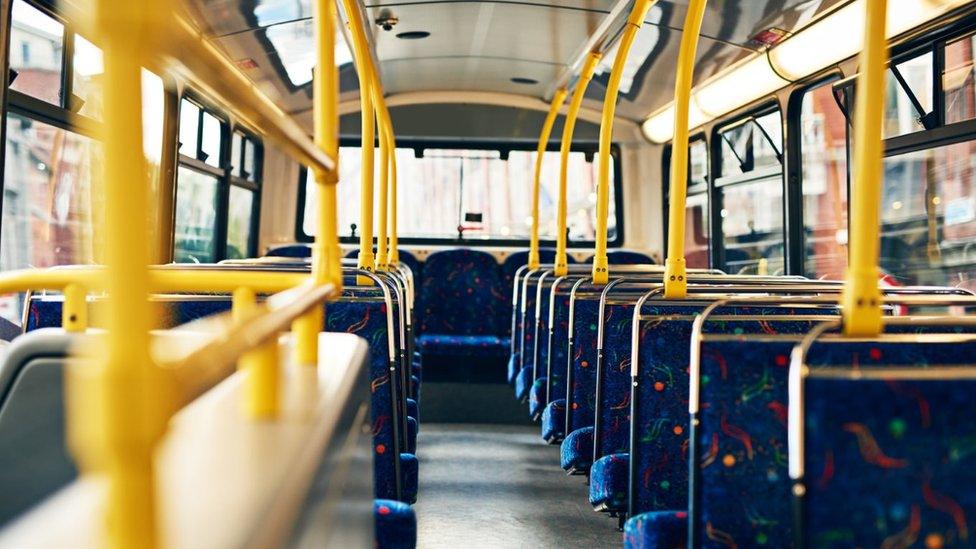Soaring bus fares 'devastating' for passengers
- Published
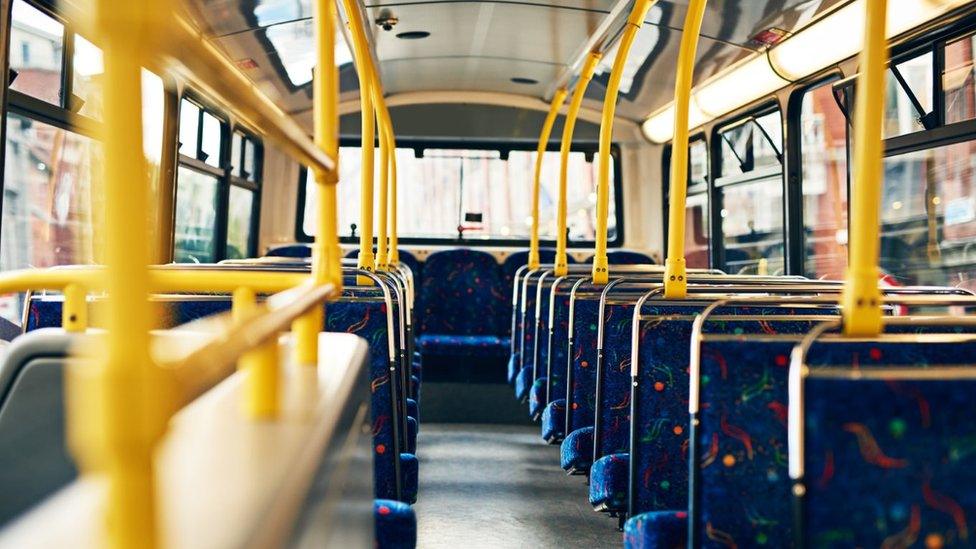
Price rises of up to 15% on buses across Scotland could lead to falling passenger numbers, campaigners have warned.
The soaring ticket prices have been introduced as the Scottish government's Covid recovery funding ends.
First Minister Humza Yousaf said concessions were still in place for pensioners and under-22s.
But residents in rural communities described the fare hikes as a fresh blow amid the cost of living crisis.
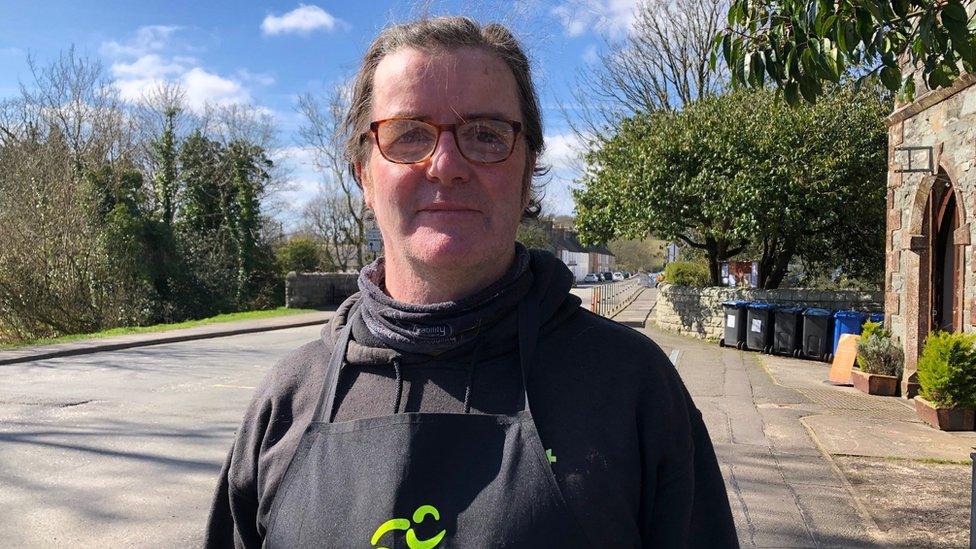
Danny Alderslowe said the escalating cost of bus travel was "tragic"
Danny Alderslowe, of Haud the Bus, described the escalating cost of bus travel as "tragic".
He told the BBC's Reporting Scotland: "We are talking about poverty, we are talking about people struggling with all the rising prices for heating etc.
"And heating prices in rural areas, for oil and everything, is through the roof.
"To hear now that we are going to get charged more for a service that is not reliable is devastating."
To illustrate the point he highlighted the first two buses of the day from his home village of Gatehouse of Fleet to Dumfries.
Mr Alderslowe said: "If people have an appointment at lunchtime in Dumfries they actually come for the one at 07:42 because they can't rely that the 10:20 bus will arrive or will get them there on time."
He said buses routinely broke down, had no heating and failed to turn up on time.
And in many parts of the country fewer buses are now serving fewer routes.
Mr Alderslowe, who relies on public transport as he does not drive, said: "I have lived here since 2012 and we have noticed the actual bus stock has got a lot worse.
"We have been hearing this from the drivers, who do a great job, and they are saying they are not getting maintained as well."
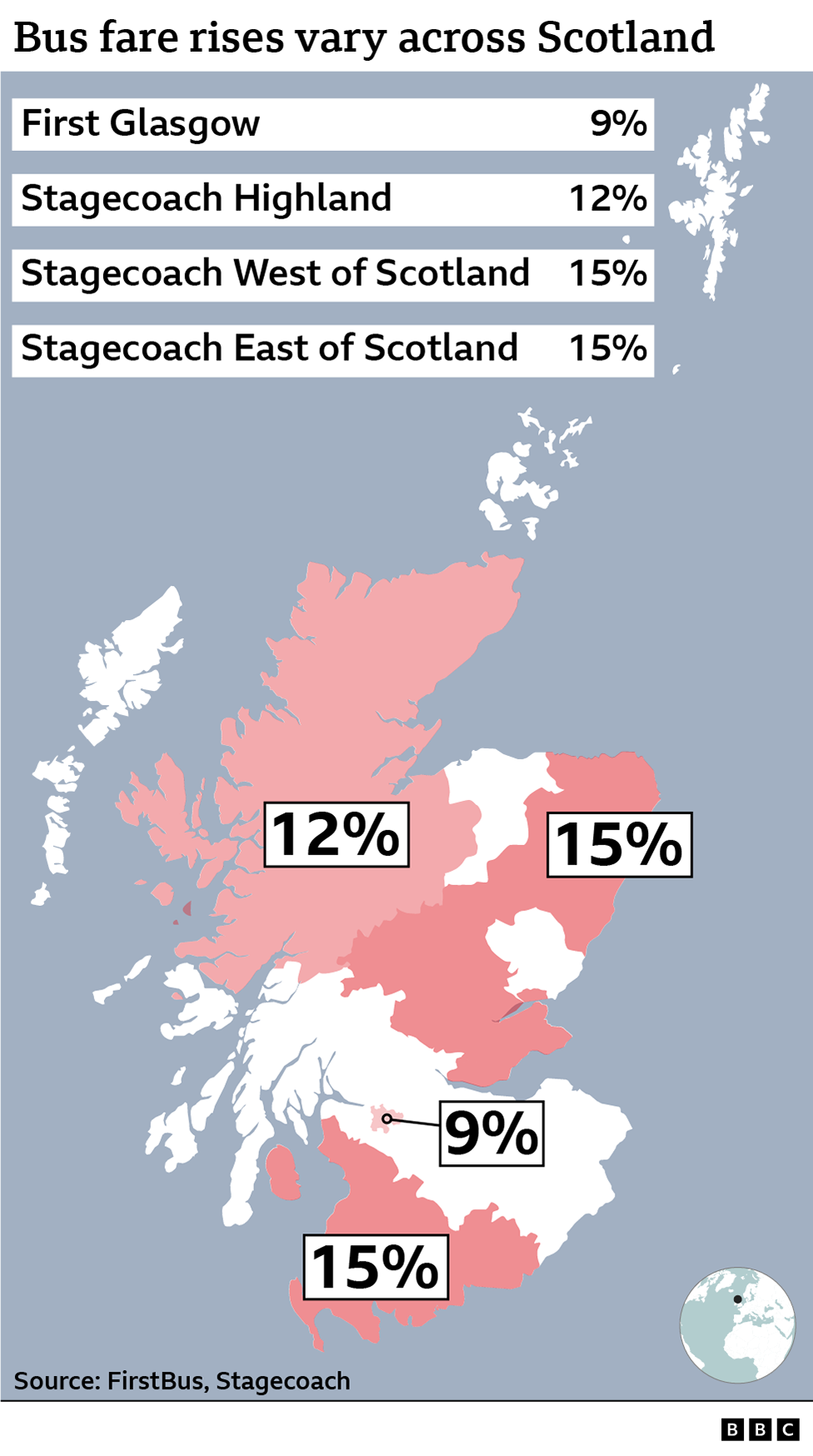
Bus firms said they had struggled since the lockdown with passenger numbers still lower than pre-pandemic levels.
Graeme Macfarlan, commercial director for First Bus in Scotland, said numbers were 90% of what they were before the global health crisis.
He added: "We are not back to normal. Like many businesses we are not immune to inflationary costs.
"In the last three, four years our own costs have gone up by over 25%.
"We have done the best we can to maintain our fare increases below a level that is lower than CPI (consumer price index) but also reflects the money that people have got in their pocket."
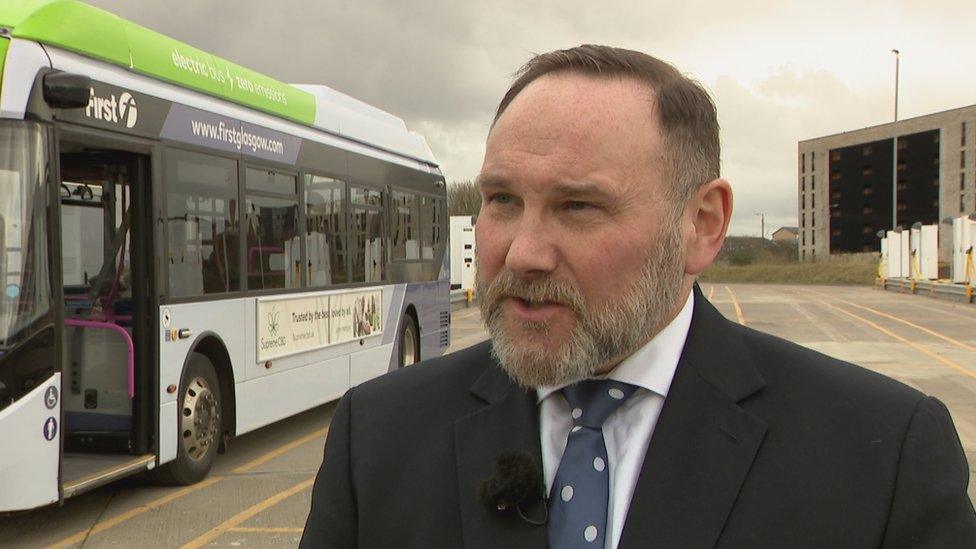
Graeme Macfarlan, of First Bus, said passengers numbers had yet to return to pre-pandemic levels
Transport Scotland said it provided up to £210m in emergency funding to support bus services during the pandemic.
But more than three years on from the first national lockdown, the Scottish government said it was facing "an extremely challenging financial landscape".
Asked about the price rises on Monday, First Minister Humza Yousaf said operators received a "really comprehensive grant".
He told BBC Scotland: "On top of that, of course, we have I would say quite a generous and very good package of concessionary travel for those who are under 22 and for older people and those with disabilities.
"We have got a really good offer and we will continue to work with the bus industry, with bus operators so we can drive passenger numbers up because nobody wants to see an increase in ticket prices at this time."
The Network Support Grant (NSG) Plus, external scheme, which expired on 31 March, included temporary additional financial support and was intended to help offset lost revenue while bus companies recovered from the effects of the Covid pandemic.
- Published31 January 2022
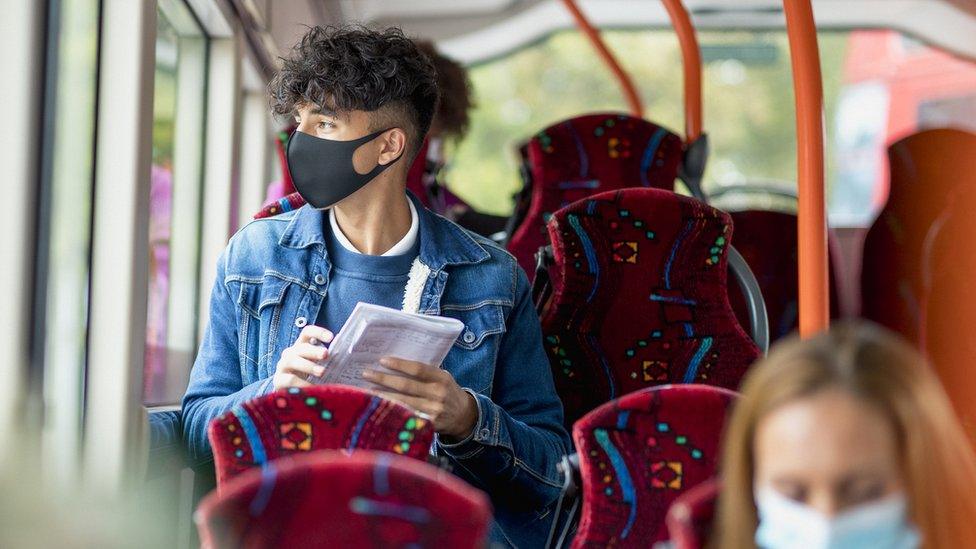
- Published26 February 2020
